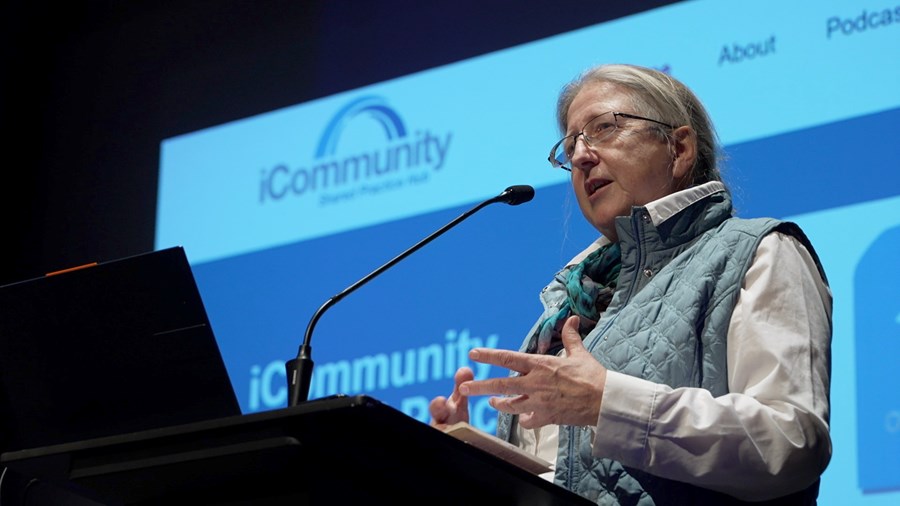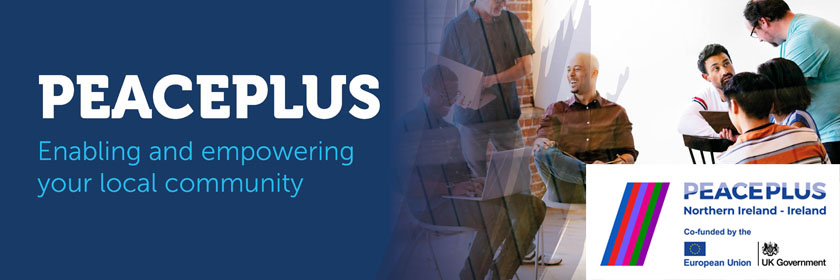The Civic Initiative for Socioeconomic Progress in Northern Ireland and Border Regions

Launched in 2023 and gaining momentum in 2024, a coalition of civic society organisations has embarked on an initiative that serves as a platform for community engagement and dialogue in Northern Ireland and border counties. It seeks to examine and advance key aspects of the Belfast/Good Friday Agreement. The idea stemmed from conversations on the 25th anniversary of the Belfast Good Friday Agreement, the Civic Initiative, and the long gap without an assembly and has been welcomed by participants as a timely and necessary response to ongoing challenges and divisions. By fostering dialogue, collaboration, and community participation, this initiative hopes to contribute to the many efforts by civil society to pave the way for a more just and equitable future.
The ‘Civic Initiative’ is aimed at addressing pressing socioeconomic issues through a comprehensive exploration of critical socioeconomic rights outlined in the Belfast/Good Friday Agreement. These include fundamental areas such as housing, healthcare, education, human rights, rural access, political institutions, poverty, and cultural concerns. By undertaking a structured examination of these issues, the initiative aims to identify challenges, generate solutions, and foster inclusive decision-making processes.
The Civic Initiative’s approach unfolds in several stages, beginning with regional and targeted forums and workshops held across Northern Ireland and border areas, aiming to be as inclusive as possible. These gatherings provide an opportunity for citizens to voice their perspectives, share lived experiences, and contribute to the discourse on key issues. Expert submissions from a diverse range of stakeholders further enrich the dialogue, offering valuable insights and expertise. A video series was developed to support the public’s understanding of rights covered under the agreement. These videos shed light on different aspects of the agreement, prompting attendees at events to express surprise at the breadth and depth of its provisions. Many participants have commented that they were unaware of the agreement’s comprehensive scope and its potential to impact their lives.
For example, in the video on housing, Kate McCauley, Chief Executive at Housing Rights, NI, delves into the housing elements covered in the Agreement, shedding light on aspects that many may not be aware of. She emphasises the agreement’s commitment to the right to freely choose one’s place of residence, highlighting the significance of this provision for individuals and families. Additionally, she discusses the agreement’s broader policies aimed at improving economic stability and promoting social inclusion, underscoring the importance of creating safe and inclusive communities.
McCauley gives additional perspectives on the impact of poverty on housing choices, noting that many individuals face limited options due to financial constraints. Despite progress made since 1998, McCauley acknowledges persistent challenges, including inequalities in accessing suitable accommodation. She references the Equality Commission’s findings, which highlight disparities faced by various groups, including Catholic households, Irish travellers, migrants, and LGBTQ+ communities. McCauley’s insights underscore the multifaceted nature of housing challenges and emphasise the importance of addressing these issues to fulfil the promise of the Belfast/Good Friday Agreement.
A significant milestone for the Civic Initiative will be the convening of a large-scale People’s Forum, comprising 100 randomly selected citizens. This forum aims to serve as an example of the kind of democratic platform that could be a way forward in Northern Ireland for collective deliberation. It will run like a citizen’s assembly with the formulation of recommendations based on the input of participants. Through this inclusive process, the Civic Initiative seeks to ensure that the voices of ordinary citizens are heard and reflected in the development of policies and initiatives.
Funded by the International Fund for Ireland, the Civic Initiative is overseen by a committee representing a cross-section of organisations committed to social justice and community empowerment. From Corrymeela and Disability Action NI to Women’s Resource and Development Agency, the committee embodies a diverse coalition of stakeholders with support from experts in deliberative democracy from both NI and ROI dedicated to advancing the common good on the island of Ireland through improved participatory processes.
Emma DeSouza, a prominent advocate for women’s empowerment and community engagement, leads the project, supported by a team of dedicated facilitators. With their collective expertise and commitment, the Civic Initiative aims to catalyse meaningful change and promote socioeconomic progress in Northern Ireland.
The initiative comes at a time of complex socioeconomic issues and entrenched inequalities, but such initiatives serve to remind us of the transformative power of collective action and civic engagement. Through collaborative efforts and inclusive dialogue, this initiative embodies the spirit of solidarity and resilience, inspiring citizens to come together, confront shared challenges, and work towards inclusive solutions.
Please visit www.disabilityaction.org/the-civic-initiative for more information.


